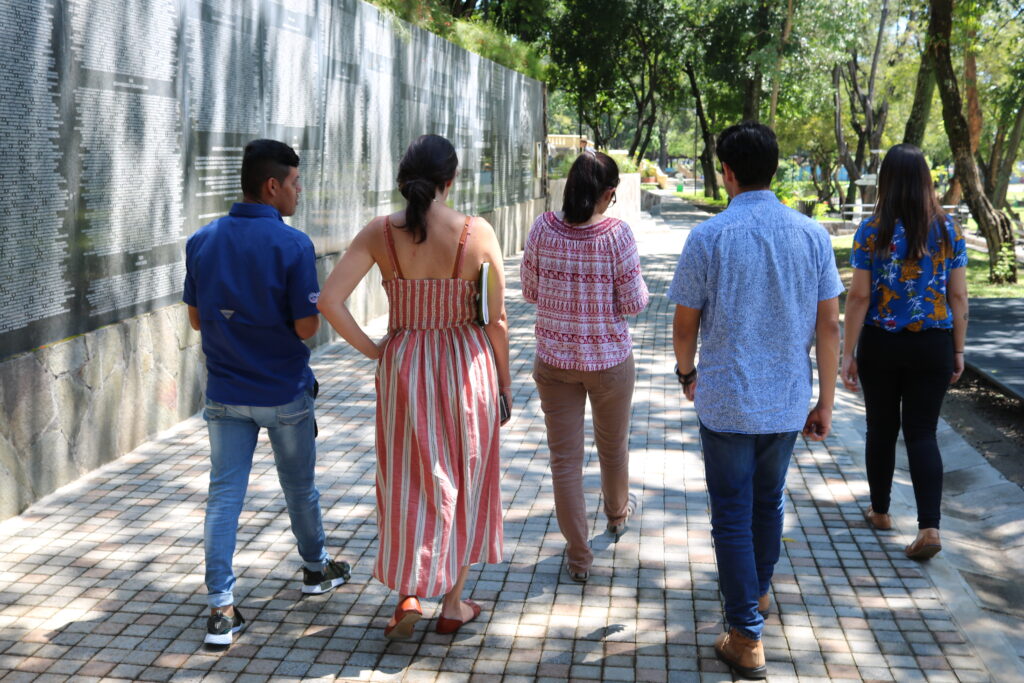Introducing La Ventana, a human-centered design project building sex education programs that really work for young people.

Sex education isn’t working for young people. When it is available, it is often shame-based, focusing on everything you shouldn’t do rather than how to make healthy and confident decisions. We need a better way to teach our youth about sex and relationships.
This is why we teamed up with YLabs, a global design and research organization, to explore the potential of pleasure-based sex education. During a 2019 pilot project in El Salvador, we spoke with 75 young men and women over the age of 18 to find out what and how they want to learn about sex.
Why El Salvador
There is a sex education program in place, but El Salvador also has some of the highest rates of adolescent pregnancy in the world, with 70% of sexually active 15 to 19-year-olds becoming pregnant each year. Sex education in El Salvador is relatively new and taught by teachers without the proper training and resources to provide the information. There has also been backlash when it comes to what material is considered appropriate for young people by parents and guardians.

Letting fear of the unknown or assumed prevail over education can have misplaced consequences. By limiting the type of sex education young people receive, we limit their ability to navigate sex and relationships and leave them vulnerable to exploitation. One sex educator in El Salvador told us that parents often don’t accept that their kids should receive comprehensive sex education since they think it leads to increased sexual activity. Research, on the other hand, shows the opposite and sex education has been found to delay sexual debut.
Sex education also teaches body ownership and security, something which is key to preventing gender-based violence. El Salvador is one of the most dangerous places in the world to be a woman. There is a strong culture of “machismo” that ties into an enduring and dangerous gang presence, and 67% of women have suffered some sort of violence as a result. In El Salvador today, there is little safe space for women to refuse sex, even in relationships. Refusing sex is interpreted as an indicator of infidelity, a change of heart, or an invitation to seek sex elsewhere. As a result, women often sacrifice their own desires, safety, and pleasure to maintain the security of their relationship.
Opening the window
Stigmas and taboos make it difficult for women and girls to explore and celebrate their sexuality openly, leading to less communication and contributing to inequality in sexual relationships. In El Salvador, women learn about sex and sexuality in isolation, making it difficult to enjoy, celebrate, and share something that is shrouded in shame. On the other hand, male sexuality is celebrated leading to both men and women prioritizing male pleasure in sexual acts. This not only impacts female identity and pleasure, but also puts unequal pressure on men to manage, direct, and perform during sex.
Through a series of interviews, workshops, and focus groups, we engaged with young people in El Salvador about sex education and what would allow them to make healthier and more confident decisions about their sexual health. We named the project La Ventana, Spanish for “the window,” because it felt like we were giving sex education a breath of fresh air.
We know that people with a positive view of their sexuality are more likely to make healthy decisions than those less comfortable with their sexuality. By opening the window to pleasure in conversations around sexual health, we can bridge the gap between what young people should know and what they want to know.
The youth-centered solution
Young people in El Salvador, just like much of the world, have supercomputers in their pockets. If they have questions about sex, they turn to the internet and Google for answers. Despite this open access and limitless content, sexually explicit materials do not satisfy young people’s desires for authentic and realistic instruction.
How do you know that you are ready to have sex?
How should you feel after sex?
How do you communicate your wishes and desires?
Conversations around pleasure during La Ventana often focused on aspects that concern emotional wellbeing and psychological safety. This is an opportunity to redesign sex education in a way that provides young people with the tools to protect their emotional wellbeing.
By breaking the stigma around pleasure-based sex education, we believe more young people will seek out services. We can use pleasure as an approach to incorporate information about condom use and consent, ultimately leading to a decrease in teenage pregnancy, STI transmission, and HIV rates.
If you would like more information about La Ventana, please reach out to Nicole Ippoliti, project lead at YLabs Global.
Co-founder of The Case for Her
- Gerda Larssonhttps://thecaseforher.com/blog/author/gerda/
- Gerda Larssonhttps://thecaseforher.com/blog/author/gerda/
- Gerda Larssonhttps://thecaseforher.com/blog/author/gerda/
- Gerda Larssonhttps://thecaseforher.com/blog/author/gerda/


